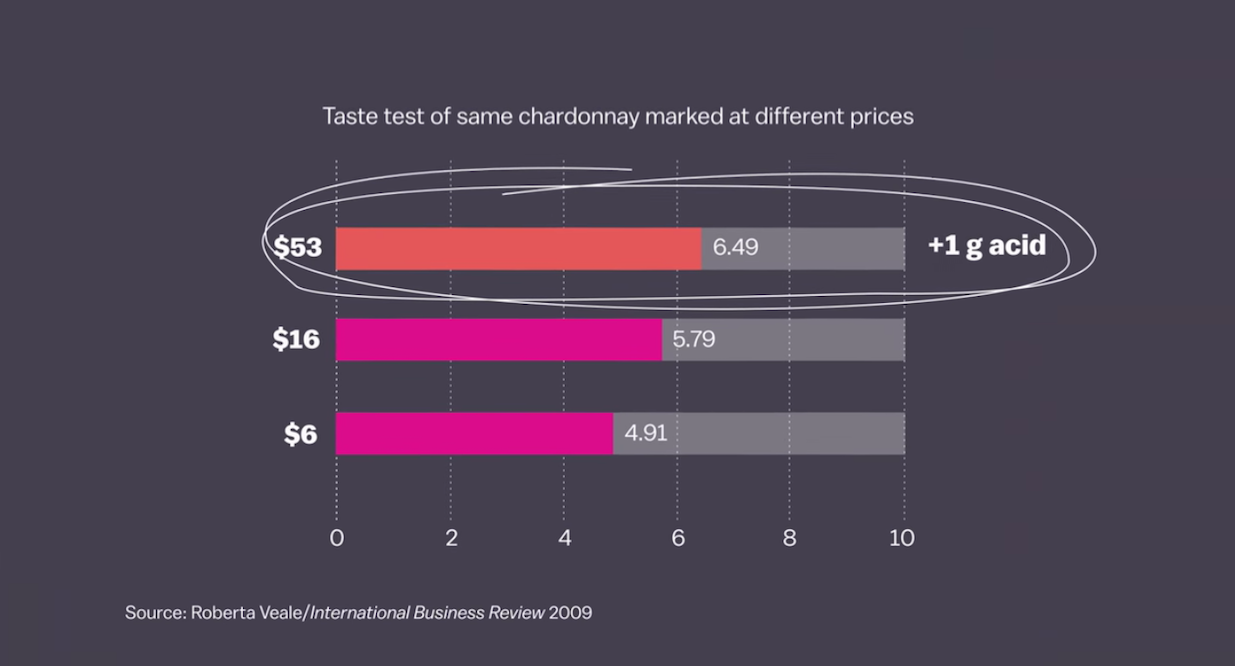Why You're Spending Way Too Much on Wine

By:
When it comes to wine, we tend to associate price with quality. But just because a bottle of cabernet sauvignon costs $50, that doesn't necessarily mean it tastes any better than the $8 blend. The average consumer can't really differentiate between cheap and expensive wines in blind taste tests, studies show.
As it happens, people actually seem to prefer cheaper wines to the expensive alternative. A 2008 study looked at data from 17 blind taste testings conducted by wine expert Robin Goldstein. Based on the responses of over 500 participants, who tried over 500 blends of wine, the researchers concluded that we should be skeptical about pricey blends.
"Unless they are experts, individuals on average enjoy more expensive wines slightly less," the study authors wrote. "Our results suggest that both price tags and expert recommendations may be poor guides for non-expert wine consumers who care about the intrinsic qualities of the wine."
The study's findings are consistent with earlier research that shows people are largely unable to differentiate between wines that are $7 or less and those that cost $14 or more. In a blind taste test arranged by psychologist Richard Wiseman, more than 500 tasters weighed in on a variety of red and white wines priced between those points, and they were only able to tell the difference between the cheap and moderately expensive white blends 53 percent of the time and 47 percent of the time for red blends. "Overall they would have been just as successful flipping a coin to guess," The Guardian reported.
Why wine ratings are flawed.
That raises an important point. Walk into your local liquor store — or pick up a copy of a Wine Spectator magazine — and check out the ratings. You'll probably find that more expensive brands receive the highest ratings, but that's partly because not all magazines require their tasters to remain blind to the price, Vox reported. While data from blind tastings reveal that average consumers tend to prefer cheaper blends, price can dramatically influence how you perceive the taste of wine.
In a 2009 study from the Australian Agricultural and Resource Economics Society, researchers asked wine enthusiasts to rate three chardonnays, priced at $6, $16, and $53 — except they were all the same wine, and people still rated the more expensive glasses higher. That was still the case even after the researchers increased the acidity of the wine, making them taste worse by most standards.
 Vox - vox.com
Vox - vox.com
And that probably has to do with the fact that knowing the price of wine triggers increased activity in the medial orbitofrontal cortex, a part of the brain associated with pleasurable taste. "So expensive wines may actually taste better after all," Vox reported, "as long as you know that it's expensive."
Other factors that contribute to taste.
If you want to boost the flavor of your next glass of Merlot, pair it with some classical music. Apparently listening to certain types of music can affect how we rate the tastes of wine, a 2008 study from Heriot-Watt University in Edinburgh found. Participants rated different blends as much as 60 percent richer and more robust when they tasted the wine in rooms where music was being played compared to those who tasted wine in rooms where no music was played.
[h/t Vox]
